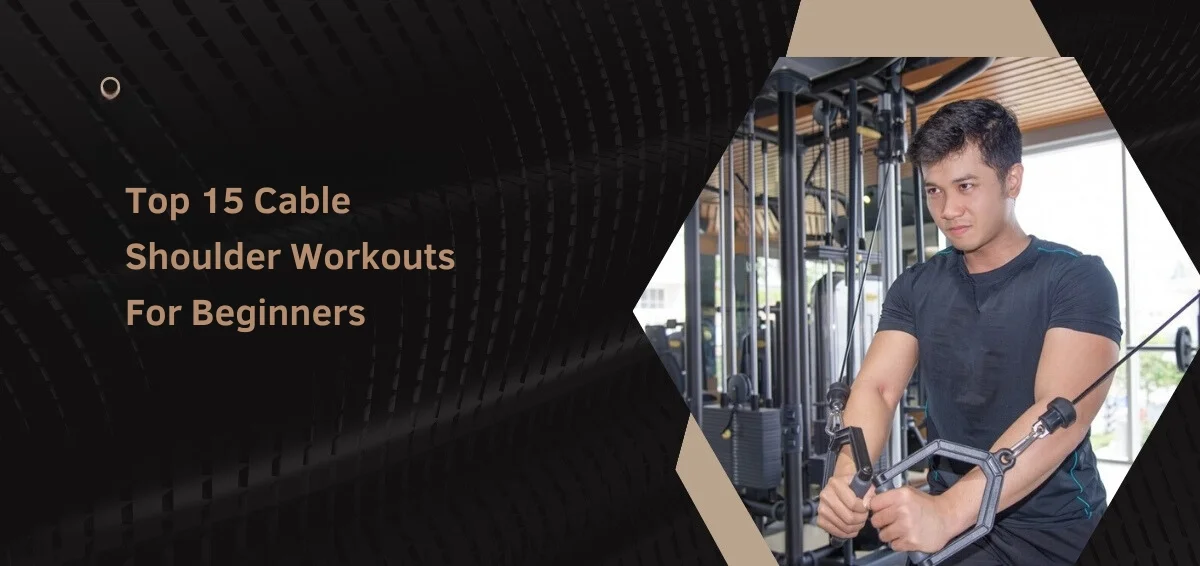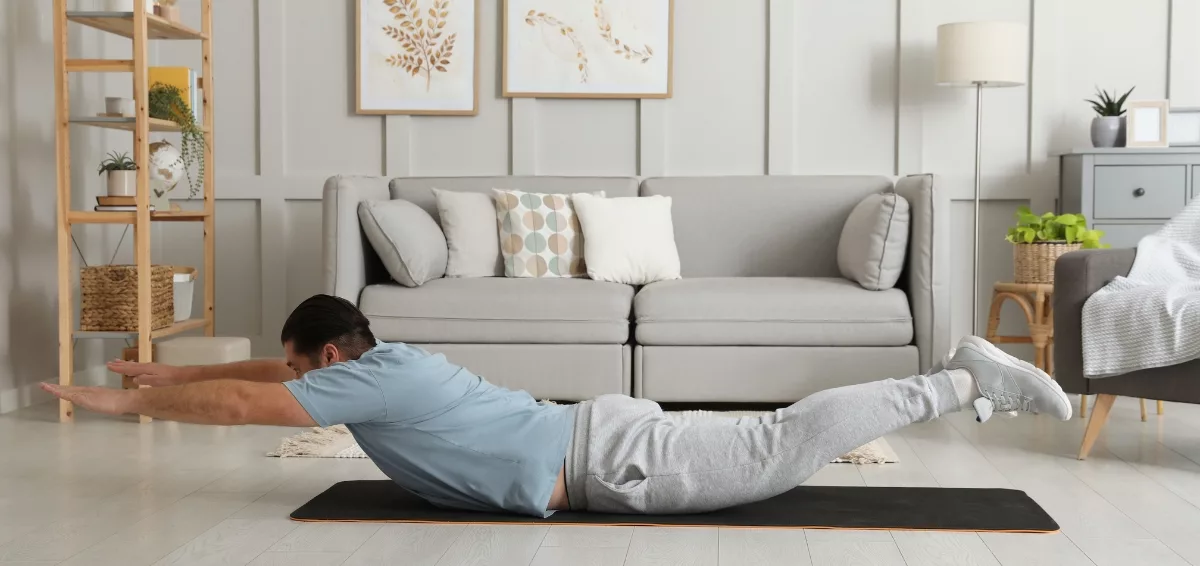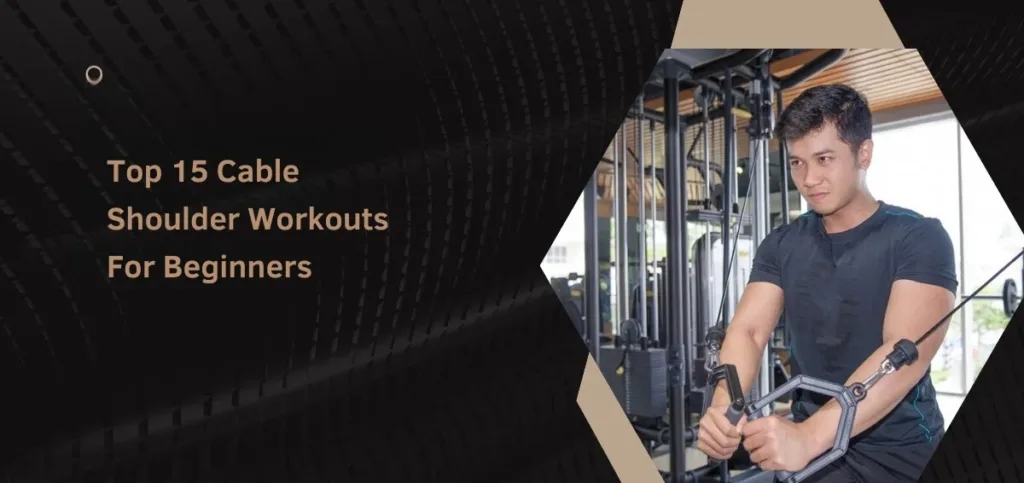
Sculpted shoulders enhance the overall physique of a person. Usually, people train their shoulders with free weights to achieve the desired results. But they are not the only way to train the shoulder muscles. Cable shoulder workouts are a great alternative to achieve toned shoulders. Cable shoulder workouts create tension throughout the entire range of motion constantly. It, in turn, increases shoulder strength and sculpts the muscles. Cable exercises target the front, middle, and back deltoid muscles. So, you develop strength equally in all parts of the shoulder. Beginners can quickly learn these exercises and implement them in their workout routines. Let’s take a closer look at 15 of the best cable shoulder workouts to achieve sculpted shoulders.
15 Best Cable Shoulder Workouts
1. Seated Cable Rear Delt Fly
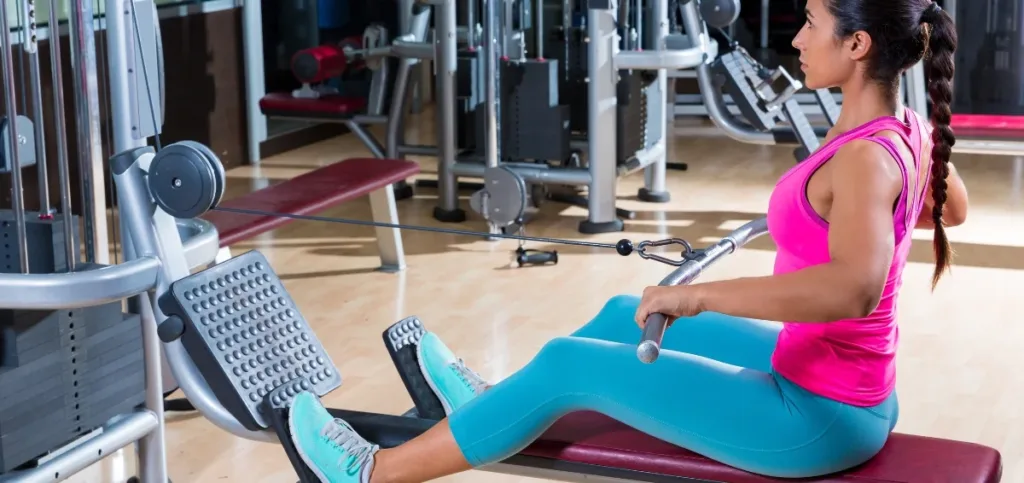
Seated cable rear delt fly is a great isolation exercise for the posterior deltoid. Here’s how to perform it.
- Grab a stable bench.
- Face it in the direction of the low pulley station.
- Hold both handles of the pulley
- Now, stretch out your arms to your sides.
- Try to create a 45-degree angle.
- Pull your hands. They should meet at your body’s center.
- Bring them back to the starting position.
Check Also: Beginner CrossFit Workouts
2. Single Arm Cable Lateral Raise
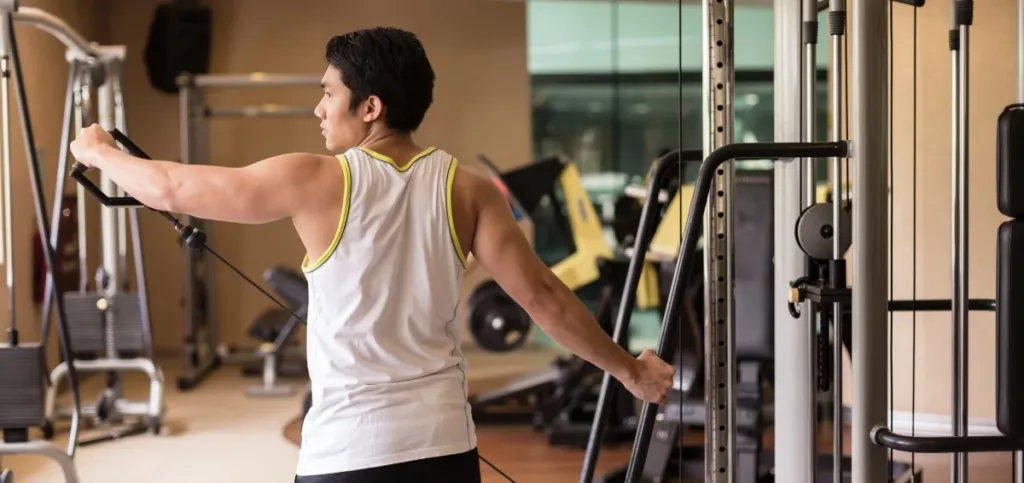
This exercise is a cable alternative for the dumbbell side lateral raise. It’s a one-arm exercise. So, you need to train each arm independently.
- A single-handle attachment is attached to the cable machine.
- Stand with your feet shoulder-width apart. They should be parallel to the handle.
- Your right foot should be closer to the handle.
- Grab the handle with your left hand.
- With your right hand, grab the metal column that holds the pulleys.
- Lean your body to the left.
- Your right arm should be fully extended.
- Drive your elbow out and up while maintaining a slight bend.
- You must raise the handle till your upper arm is parallel to the floor.
- Return to the beginning position.
3. Cable Upright Row

The cable upright row targets the deltoids and the upper back muscles. It helps you build strength in not only the shoulders but also the upper back.
- On the cable machine, add a straight bar attachment.
- Grip the straight bar shoulder with a pronated grip. Your palms face downwards.
- Now, lift the straight bar. Your elbows should come out to the sides.
- Lift the straight bar till it is at mid-chest height.
- Now, lower the straight bar back to the initial position.
4. Cable Shoulder Press
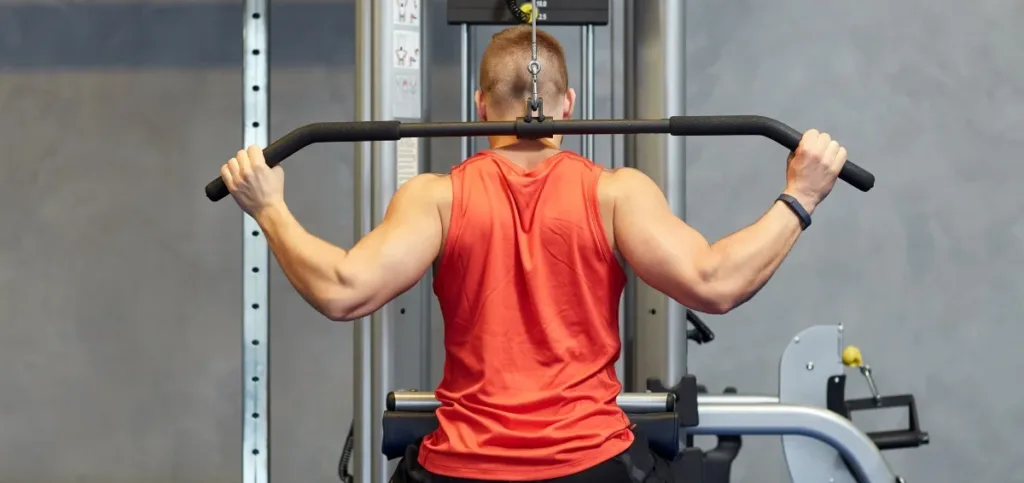
A cable shoulder press puts constant tension throughout the movement. It’s also better for the shoulder joint health than dumbbell presses.
- After setting the pulley to the lowest setting, grab both its handles with your hands.
- Now, bring them to shoulder height.
- Take a step back from the machine. Push the cable handles directly overhead.
- When you reach the top, squeeze your shoulders.
- Now, with control, lower the handles back down.
5. Cable Face Pulls
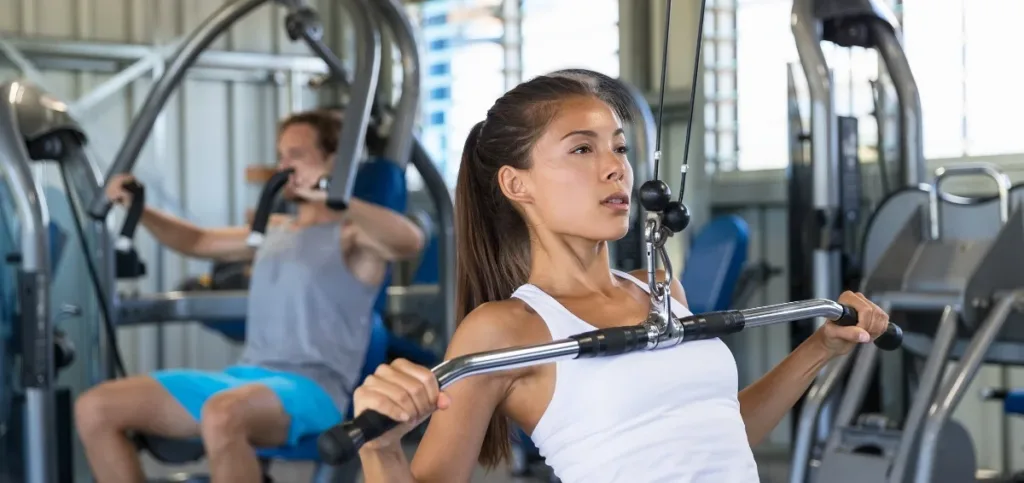
Cable face pulls increase the strength of the shoulder’s posterior deltoids. These muscles are often neglected in other exercises.
- Set up the cable pulley machine and use the rope attachment with two hand-holds.
- Grasp the handles. Take a step back and fully extend your arms.
- Now, lean back slightly.
- Pull the rope toward yourself so that you start lifting the weight.
- Now, engaging your shoulders, roll them back.
- Ensure that you form a good posture by not rolling or hunching your shoulders.
- Pull the attachment’s handles straight toward your forehead.
- Extend your arms while maintaining a good posture to reverse the movement.
6. Cable Crossover

Cable crossover exercise works multiple muscle groups, such as the front shoulders, upper chest, middle, and lower back. But you should maintain the right form to reap its benefits.
- Set up your cable with the pulleys locked above your shoulder.
- Use a weight that you find challenging but not uncomfortable.
- Stand in the middle of the cable and grab each pulley.
- Pull the attachment as you bring your hands down and against your body.
- Hold the contraction for five seconds and then go back to the starting position slowly and steadily.
7. Arnold Press With Cables
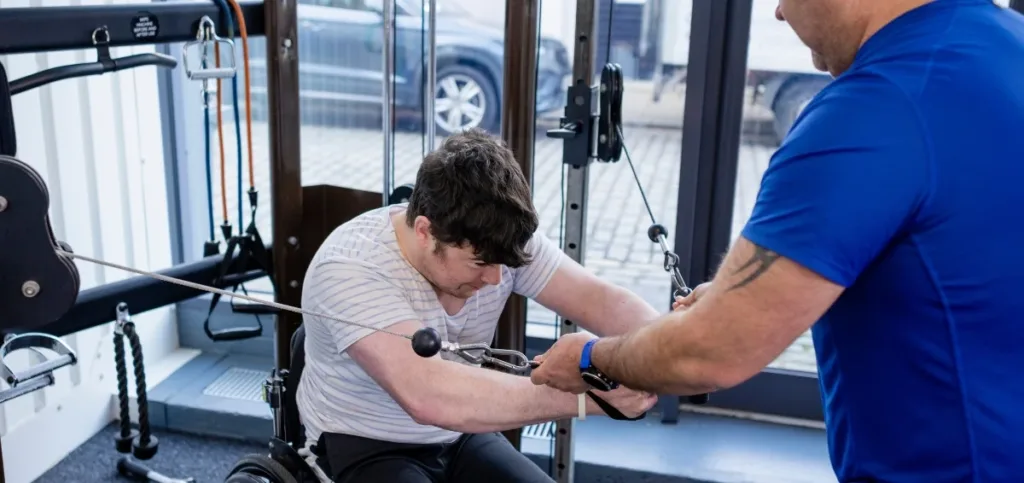
Cable Arnold presses target your deltoids as well as the biceps and triceps. It’s a must-try exercise for those wanting to build shoulder stability.
- Attach D handles on the cable machine pulley.
- Stand in a position where your feet are shoulder-width apart.
- Grab the D handles with both of your hands.
- Your elbows should be bent slightly.
- Press the handle away from your chest and in an upward position.
- Extend your arms as much as you can.
- Go back to the initial position.
8. Egyptian Cable Lateral Raise
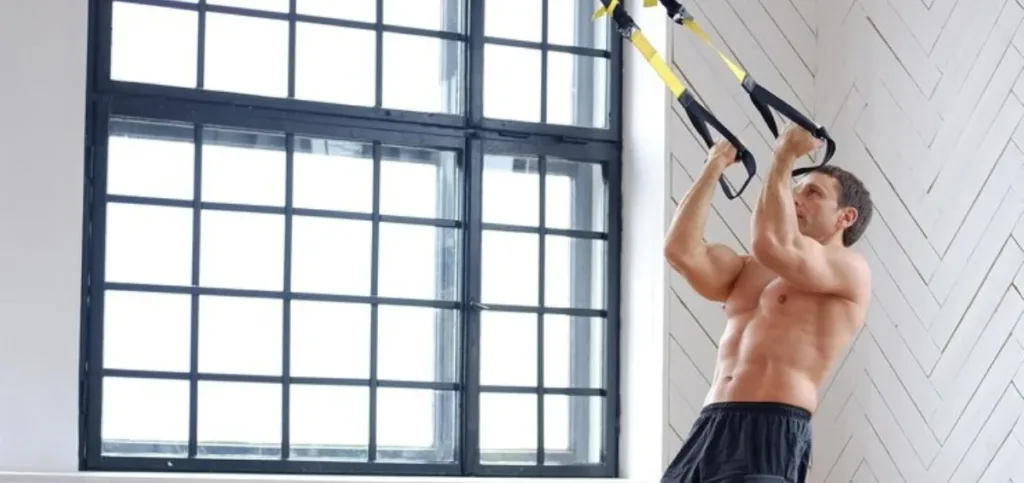
Egyptian cable raise gives a nice twist to the usual cable lateral raise exercise. In this exercise, you train each arm independently with the cable between your legs.
- On the cable stack’s lowest position, attach a D-handle.
- Stand to the side and place one of your feet over the cable.
- Now, grab the handle with your left hand.
- Grab the tower of the cable with your right arm.
- Extend your left arm by your side as you hold on to the handle.
- Raise your arm out to your side.
- When your elbow reaches shoulder height, squeeze your side delts for 2 seconds.
- Now, lower your head to the initial position.
9. Lying Cuffed Lateral Raises
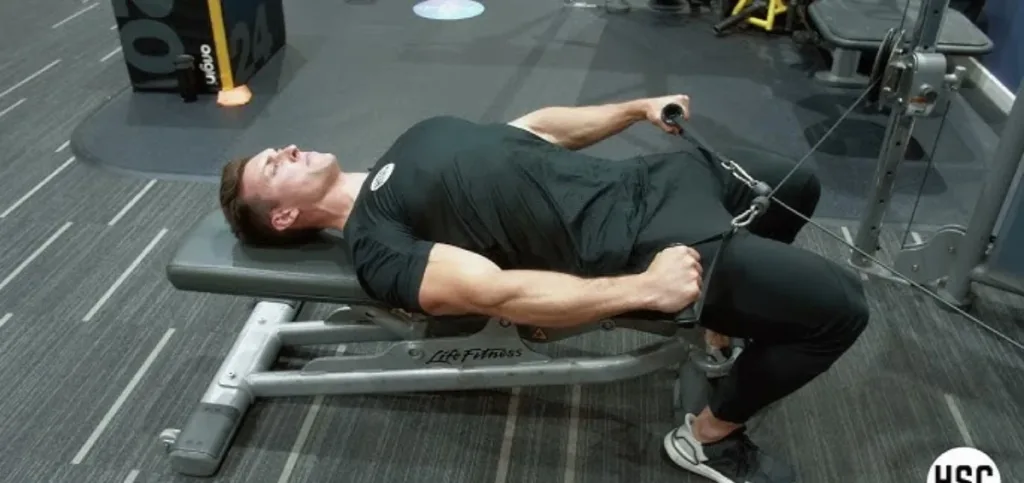
Do you want to build the size and strength of your shoulders? Lying cuffed lateral raises, by isolating your side delts, will help you achieve that.
- Set a 30-degree angle on an adjustable bench.
- The seat should be parallel to the cable stack.
- Attach a right cuff on the left forearm and a left cuff on the right forearm.
- Sit down on the bench, and extend your arms till there is a slight bend in your elbows.
- Now, raise your arms laterally. When they reach shoulder height, lower them back after 2 seconds to the beginning position.
10. Cable Shrug
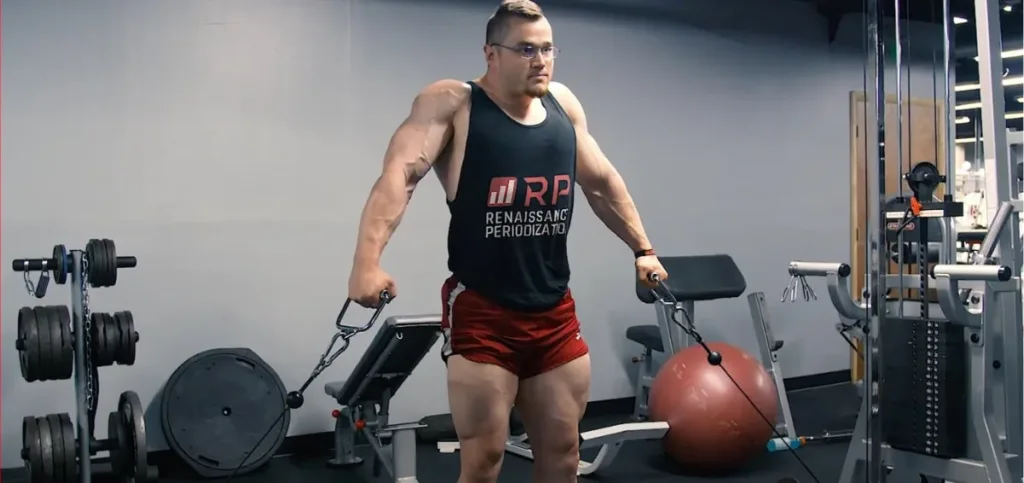
The cable shrugs the target’s shoulders, upper back, and traps. It works the shoulder muscles through an entire range of motion.
- Grab a cable bar attachment attached to a low pulley.
- Stand close to the pulley with arms extended, holding the bar.
- Raise the bar by lifting the shoulders as much as you can.
- Hold this position for a second.
- Lower the bar back to the initial position.
Read Also: Exercises To Do Everyday At Home
11. Cable External Rotation
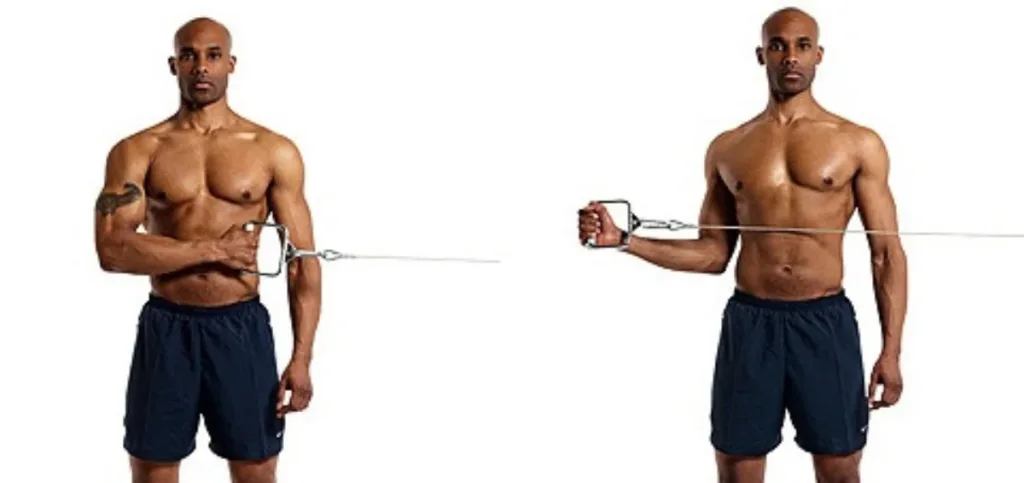
Cable external rotation is an injury prevention exercise that increases the strength and balance of your shoulders.
- Attach a D-handle to the cable pulley. Ensure that it is elbow height.
- Grab the pulley’s handles with a neutral grip using the arm that’s farthest.
- Bend your elbow to 90 degrees on the side of your torso.
- Pull the handle away from your body. Do this by rotating your shoulder externally.
- Hold for 2 seconds at the top and then return to the initial position.
12. Cable Internal Shoulder Rotation
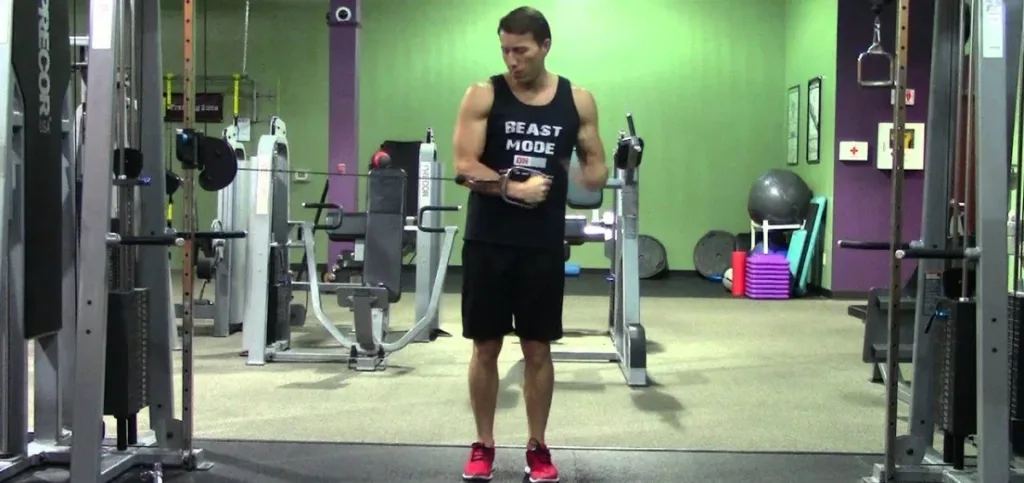
The cable internal shoulder rotation works your stabilizer muscles. These muscles are in front of your shoulder. If you want to prevent rotator cuff injury, this exercise is a must.
- Set up the pulley machine at the naval level.
- Grab a single handle in one of your hands.
- Now, step out with your sides facing the pulley.
- Bend your arms to 90 degrees and rotate your hand inwards.
- Keep your elbow locked at your side.
- Now, switch sides to perform cable internal shoulder rotation with the other arm.
13. Cable Reverse Fly
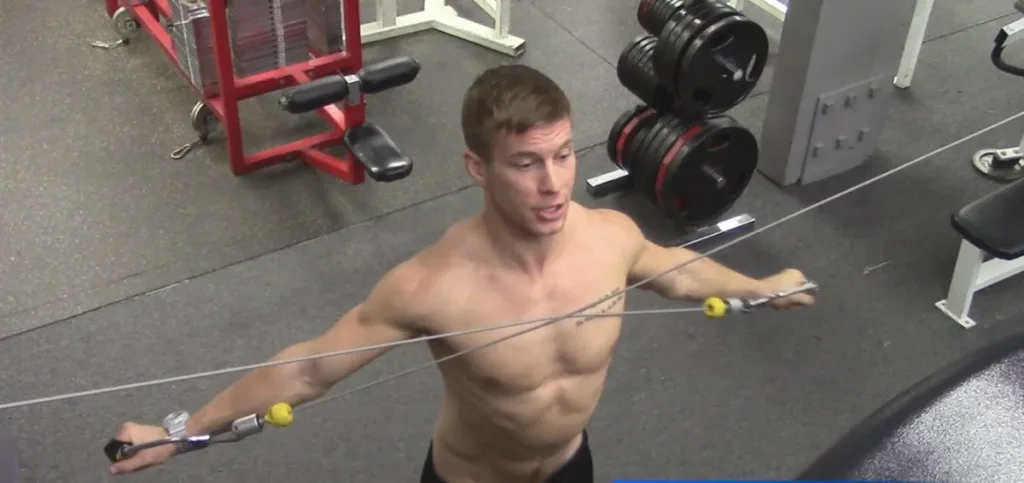
Cable reverse fly targets your posterior muscles. Mastering this exercise is easy, even for beginners.
- Set up your pulley to shoulder height.
- Grab the right handle with the left hand and the left handle with the right hand.
- Cross your arms in front of you.
- Pull the handles away from your midline.
- When you reach the end of the movement, squeeze your shoulder blades together.
- Now, go back to the initial position.
14. Bent-Over Cable Rear Delt Fly
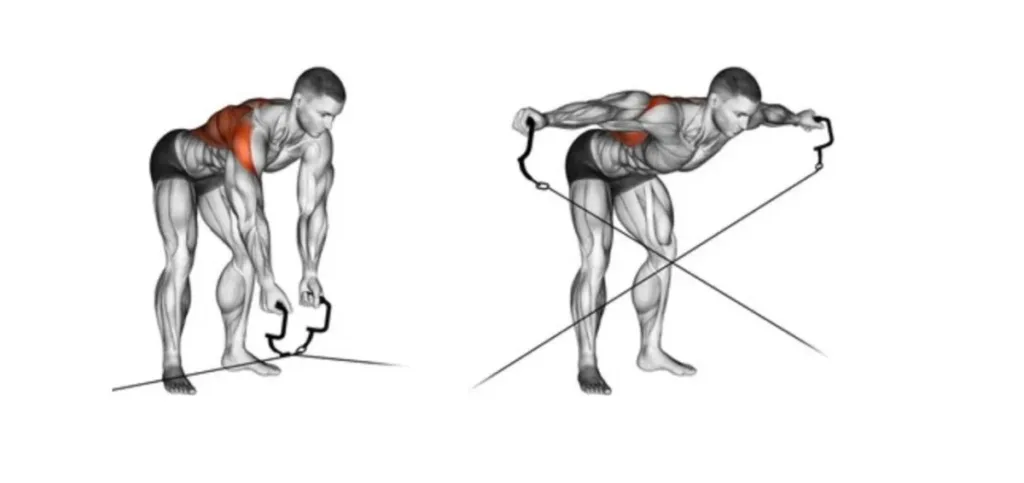
Bent-over cable rear fly is an alternative to the dumbbell bent-over rear delt fly. It is particularly useful for those with lower back issues.
- On the lowest point of a cable pulley machine, attach the D-handles.
- Now, hinge forward till your torso is in line with the floor.
- Reach across your body and grip the left handle with your right hand.
- The right handle should be gripped with your left hand.
- Bend your elbows slightly and let them hang down.
- Pull the handles backward and laterally by retracting your shoulders.
- When your elbows are in line with your shoulders, squeeze your rear delts for two seconds.
- Go back to the initial position.
15. Kneeling Cable Shoulder Press
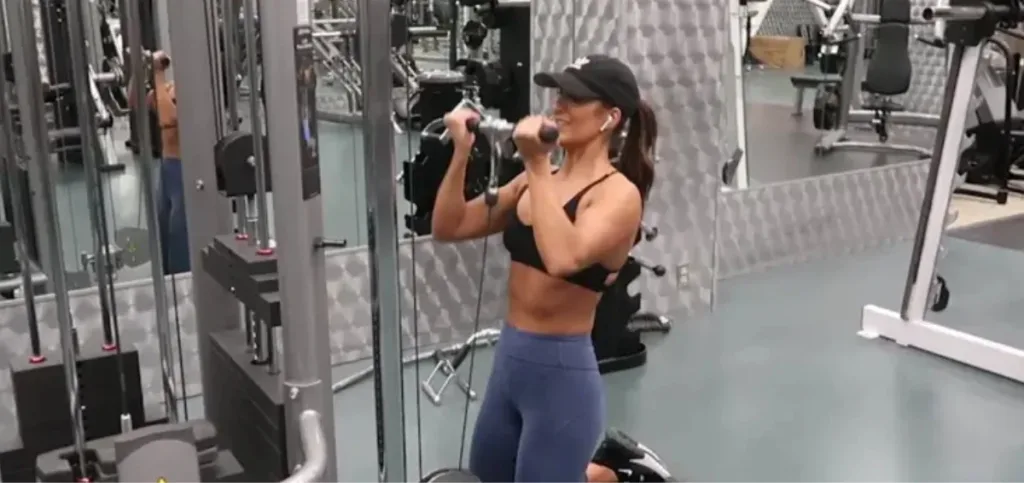
The kneeling shoulder press helps you build your shoulder strength. Ensure to keep your hips tight and core muscles engaged during this movement.
- Set up the cable pulley station to the lowest setting.
- Hold the cable with a wide, neutral grip.
- Kneel on the floor.
- Ensure that the cable is at your body’s midline.
- Pull the handles of the cable to your collarbones.
- Press the handles till your arms are straight above your head.
- Lower the handles to return to the starting position.
Final Words
Cable shoulder workouts allow you to exercise your shoulders in different ways. They sculpt and strengthen these muscles by providing constant tension throughout the movement. The exercises above are easy for those new to cable workouts. Integrating them with your usual workout regimen will help you benefit from better overall shoulder health.

